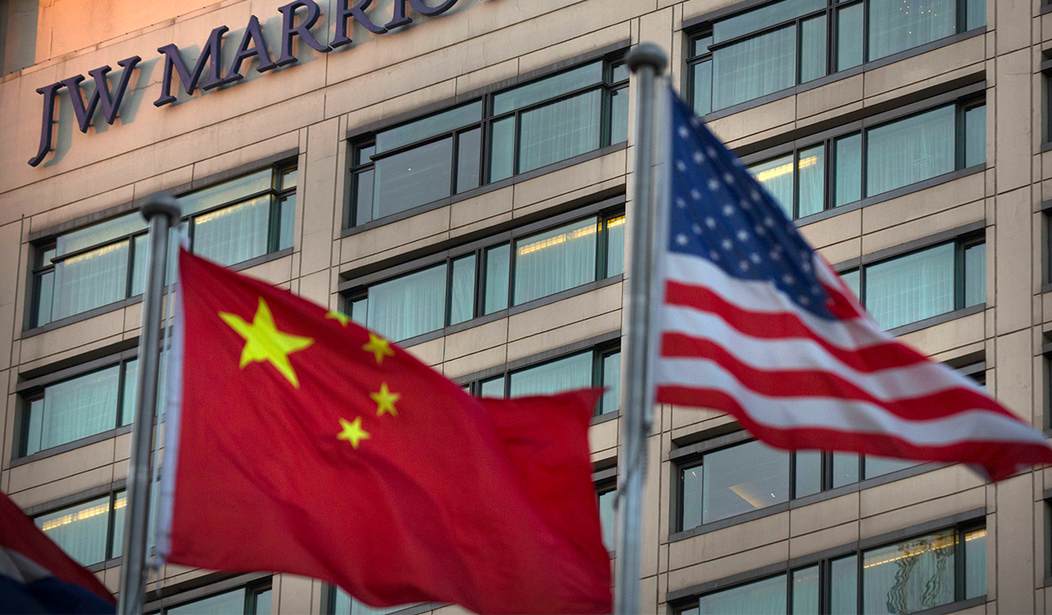American – and unified Western – diplomacy matters. It matters especially now. It is not child’s play, insignificant, academic game, or gobbledygook. It is the stuff life-and-death peace is made of. We are fumbling, need to recover the ball, get back in line with American and Western history and values.
First, we must think ahead to prevent war – and that requires smart diplomacy. We live in testing times. Tests are multiplying – from China, Iran, Russia, North Korea, and non-state actors. Unfortunately, wars are often traceable to failed diplomacy. Concretely, failed diplomacy causes adversaries to misjudge their relative power, misjudge one another’s intentions, and allows preventable conflicts to occur.
Historians are clear. Having worked in the Reagan and Bush 41 White Houses, and as Assistant Secretary of State for Colin Powell, my view is that history matters. Applying it forward also matters. George Patton famously wrote that your plan must fit the circumstances, not the other way around. You cannot wish the world one way, assume it that way, plan for it that way – hoping circumstances come around to match your plan. Patton noted most global failures start and end with that core misjudgment.
Yet, that appears to be the Biden team’s approach – based on willful, hopeful, or simply misplaced assumptions about our adversaries, especially China, Iran, Russia, and North Korea. Errant, even ambiguous, signals can be lethal, changing an adversary’s assumptions, inviting conflict. The Biden team must pivot fast to circumstances, the word as it is, not plan in the blind, hoping circumstances change.
Second, we cannot indulge appeasement, ever. We live in highly consequential times, but more than that: We live in objectively disrupted, volatile times. Volatility in markets and geopolitical relations green-lights risk-taking. The West should not be a party to encouraging China or North Korea in the East, Iran in the Middle East, or Russia in Eastern Europe – to start taking outsized risks. Yet the Biden team appears to be doing just that by inattention, misdirection, appeasing not thinking they are appeasing.
Recommended
Smart diplomacy – alignment behind unified deterrence of aggression – is more important now than any time since the Cold War. Western “appeasement” of China, Iran, Russia, or North Korea encourages these nations to take risks that endanger global security, aggressive, adventurist, hostile actions toward neighbors at a time when the mission must be preventing such moves, not fanning them.
To the extent US treaty obligations are real – and they had better be – opening of a door to regional hostility, encouraging it by default, only leads to greater pain, as US military engagement becomes necessary. In risky times, messaging must be clear, consistent, and credibly reaffirm deterrence.
Of course, clear signals do not always deter war. Theodore Roosevelt famously tried – in person – to persuade the Kaiser not to start WWI. But absence of deterrent messaging almost assures misunderstandings, which can metastasize into conflict. Regrettable misjudgments look stupid in reverse; the key is to see them as stupid before they are made. Diplomacy should be aligned with war planning, both in sync when addressing potential conflict, no light between them. This dials back ill-conceived adversarial risk-taking.
Third, on a hopeful note – recent missteps are not irreversible. We must boldly speak truth to illegitimate actors, call them out, deliver consequences affirming the US's will to defend territory and individual rights.
Bad geopolitical outcomes are often preventable. Clarity and decisive leadership avert stumbling. They also reduce misunderstanding, minimizing major errors. Reversing misunderstandings can preserve international order, restore predictability, offer a modicum of respect, manage drifting expectations.
To get there, we need to be clear in our own heads about what is intolerable, worth full-on diplomacy. We need to correct false expectations – such as indifference to human rights, territorial aggression, maritime, space and cyberspace power grabs. Speaking truth to potential and actual aggressors, levying significant consequences short of war, remaining true to our word, and calling out illegitimate, immoral, and indefensible actions by leading adversaries – is the only way to stop the quickening current.
Accordingly, as Ronald Reagan called out Soviet illegitimacy, immoral territory grabs, and a system that suppressed individual rights, the US and allies must now call out China, Iran, Russia and North Korea for illegitimate actions, practices, and government suppression of individual liberties. For grounding, if natural law is not enough to guide us, consider the Universal Declaration of Human Rights.
Silence, pretending accountability does not matter, imagining illegitimacy as legitimate, immorality as moral, or assuming we have no power are all dead ends. Calling foreign horrors “cultural norms” – as Biden has done – does not keep faith with American or Western values and history. The mission of our time is to speak truth – and deliver consequences – in the face of oppression, aggression and overt Chinese, Iranian, Russian, and North Korean misdirection. If we do not speak up, we will long regret it.
Robert Charles is National Spokesman for the Association of Mature American Citizens (AMAC) a 2.3 million-strong, non-partisan group for Americans 50+, a former assistant secretary of state for President George W. Bush, a former naval intelligence officer and a litigator. He served in the Reagan and Bush 41 White Houses.

























Join the conversation as a VIP Member